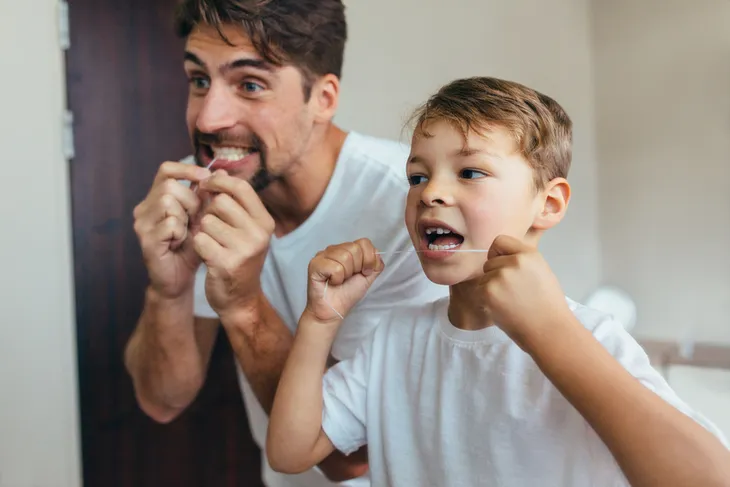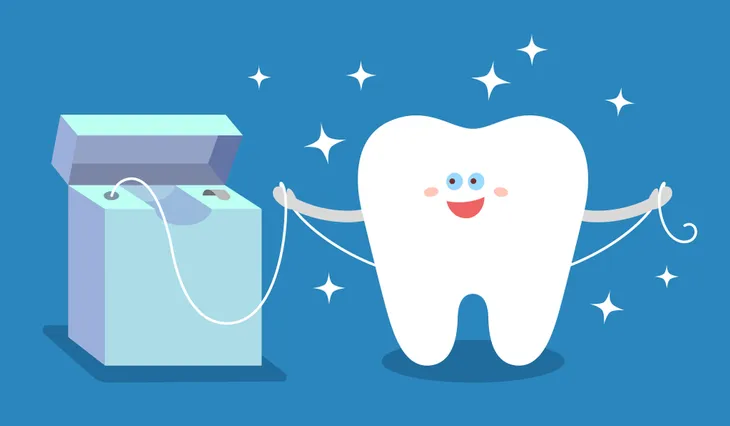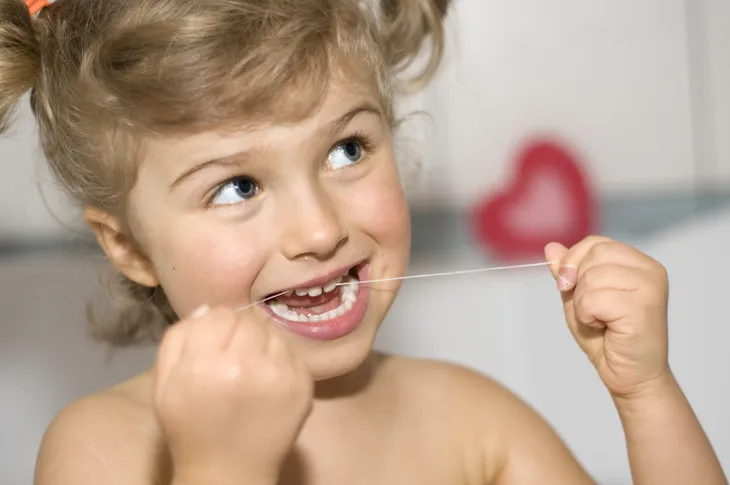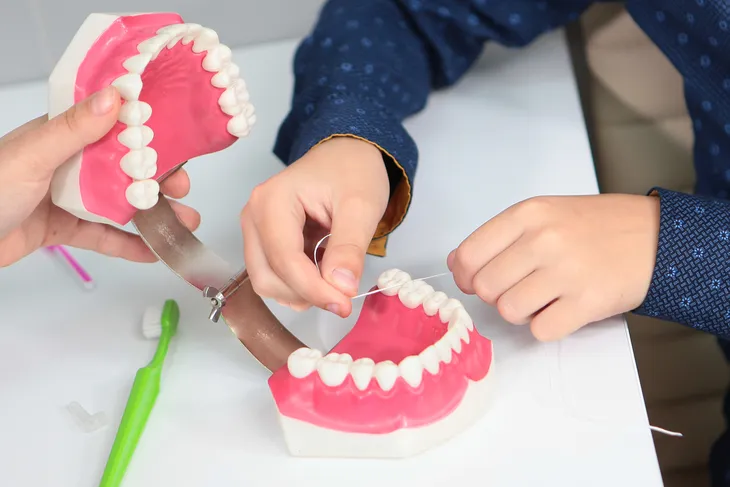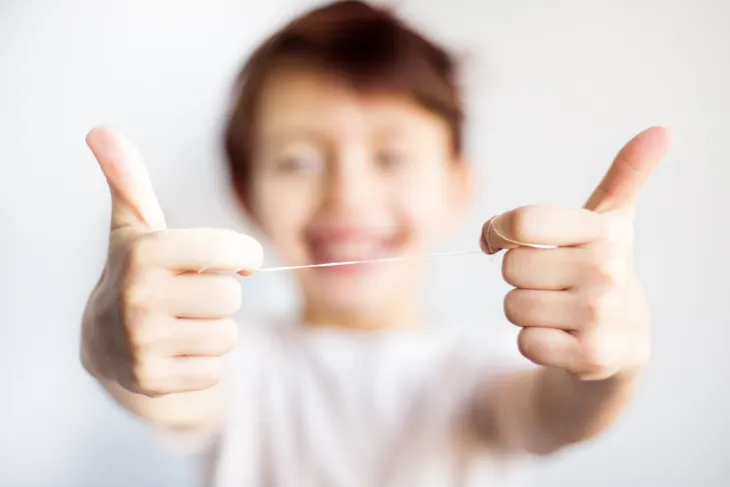Flossing—it’s part of the oral hygiene ritual that many adults skip, let alone children. However, flossing is important to get at the plaque buildup between teeth where a regular toothbrush just can’t reach.
It’s one thing to show a child how to brush, but quite another for them to let you put dental string into their mouth without a fuss. However, like most routines, starting earlier can help make it easier later on. Here are some tips on how to introduce flossing to children…
Make Flossing a Game
MyKoolSmiles.com actually lists three activities you can try with your little one to get them to floss. Keep in mind that kids love things that are fun, so if you can somehow convince them that flossing is not a monotonous task, they’ll be more likely to take the initiative.
The source recommends turning a flossing lesson into three games: Egg Carton Mouth, Sing a Song, and Peanut Butter-Rubber Gloves Game. For the first game you’ll need an egg carton and white paint, to be shaped into a “mouth” with playdough as the “plaque”. Have your child use floss to lodge it free. Singing is fairly straightforward (make a flossing song to the melody of “Row your Boat”), while the latter game involves trying to remove peanut butter from a rubber glove using a toothbrush and floss.
Create a Flossing Chart
To give your child a feeling of accomplishment that’s tangible to them, try printing out a “brushing and flossing chart” that can be checked off each time the tasks are completed. There are several different versions at your fingertips using a search engine.
You can also make your own chart using fun artwork or a character that your child can relate to. Instead of using a marker for a checkmark, you could let your child place a sticker in the “morning” or “evening” column when they complete the flossing.
Use Rewards if Needed
DentalVibe.com suggests a bit of extra incentive to get your kids to embrace oral health care independently. The source suggests “giving them a small prize for flossing every day of the week and a larger prize for flossing a certain number of days each month.”
While the site doesn’t specify this, the “prize” probably shouldn’t be a sugar-based snack. It doesn’t make sense to reward them with food that can cause tooth decay right after they successfully cleanse their mouth.
Show Them the Consequences
This might not be suitable for all kids, especially if they’re a bit squeamish (or you are). However, since a lot of kids these days spend a good amount of time in front of a screen anyway (in most cases), why not use some of that screen time to browse some oral health information?
That doesn’t mean typing “horrible tooth decay” into a search engine and bombarding them with disturbing pictures. There are a number of kid-friendly sites that can gently educate your child about the outcomes if they skip flossing. A dental professional that’s good with kids can also be a handy way to communicate this information to your child.
Be the Example of Proper Flossing
Your kids love to copy you – the good and the bad. However, this is definitely one positive habit you want children to take away from watching you. During your daily visit to the bathroom, bring your child and let them watch you floss, suggests Reader’s Digest. (Make sure you know the proper technique before passing the knowledge along to them.)
Taking this concept a step further, you can help guide their hands for flossing their own teeth if they don’t yet have the coordination to complete the task themselves. Flossing should begin when there’s no longer space between your child’s baby teeth, adds the source.
Let them Pick their Own Floss
PediatricSafety.net goes back to the “fun factor” to motivate kids. It notes that when you’re at the drugstore or grocery store, let your child pick out their own dental floss that’s separate from your own – some of the brands have fun pictures and relatable characters on them.
The source notes that there are even flavored and colorful flosses available out there that will get children excited about doing the job themselves (sure, they might be a bit more expensive than yours, but focus on the benefits). Remember, it shouldn’t be an ordeal to your child to floss. “Flossing should be done at least one time per day and shouldn’t take much longer than a couple of minutes,” offers the source.

